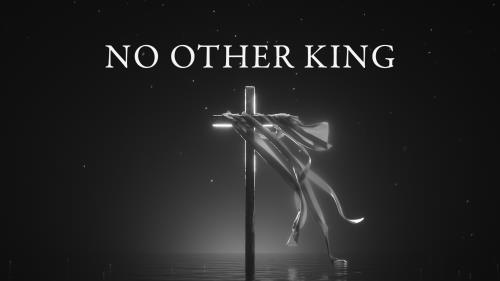-
The Feast Of Tabernacles Series
Contributed by Chris Appleby on Nov 28, 2017 (message contributor)
Summary: Jesus is the Messiah, the promised one who would rule over an everlasting kingdom as God’s anointed king. We are called on to make a response to Jesus. Do we acclaim him as our king or reject him because he doesn’t meet our expectations?
You probably won’t be surprised to discover that there’s a link between this chapter and the previous one. Last week we saw how some people find it hard to believe in Jesus, because faith is a spiritual activity and they’re basically materialists, or because they don’t accept the possibility of supernatural forces in our world, or because the idea of Jesus the Son of God dying on our behalf is too hard to believe.
Well this week we continue to think about the question of belief or unbelief.
Here we find a series of people who observe Jesus’ behaviour, who speak with him or listen to him and who apply their own standards of judgement to him and get differing answers to the question “who is Jesus?”.
Jesus’ Brothers
The first group are his younger brothers. They appear in Mark’s gospel wanting to take Jesus away to look after him because he’s not looking after himself. But here they’re with him in Galilee just before the feast of Tabernacles and they wonder why he isn’t getting ready to go. Jerusalem at the feast of Tabernacles was the biggest gig of the year – a bit like being in New York on New Year’s Eve. Everyone who could would be there. It was the great harvest festival for the Jews. His brothers don’t believe in him as the Son of God at this stage. He’s just their famous big brother. But they want him to go to Jerusalem to show people that he’s still got that magic touch. If you remember, at the end of the last chapter people started moving away from Jesus because they didn’t like him talking about them eating his flesh. So they encourage him to go up and show the people there his power.
You can see their unbelief in their mistaken idea that he wants to be famous. In fact the opposite is true. He could go up in public and they probably would have welcomed him the way they did on Palm Sunday. But at this stage he prefers to go in secret, waiting for God’s time, to appear in the temple.
He also knows that at this stage the reception he’ll receive from the Jewish leaders will be a negative one. He says to them: “7The world cannot hate you, but it hates me because I testify against it that its works are evil.”
The Crowd
But then there’s the crowd. Here we find mixed responses. The first response is amazement. Where did he get such learning? He hasn’t been taught by one of the great rabbis. Today we’d say he doesn’t have a university degree; he hasn’t been to theological college. So how come he knows the Scriptures so well? How come he can teach theology with such authority? What’s more, they probably noticed that in his teaching he didn’t constantly refer to other Rabbis the way the Pharisees did. He spoke on his own authority. “I say unto you”, “I tell you the truth”, etc. When asked about this he says he only teaches what God gives him. Then he gives one of the clues to believing in him: “17Anyone who resolves to do the will of God will know whether the teaching is from God or whether I am speaking on my own.” Jesus teaching is self-authenticating. But notice as we saw last week, that although Jesus teaches on his own authority he isn’t seeking his own glory. What’s more, he says, the fact that he’s only seeking God’s glory is part of the evidence for the genuineness of his claim (v18).
Later on the people ask themselves who is this man Jesus? When they realise that no-one’s doing anything to stop Jesus they begin to wonder whether maybe the authorities really believe that he’s the Messiah? How can that be, they wonder. We know where he comes from. The Messiah is meant to appear from nowhere to bring salvation. Yet Jesus had been around for some time and didn’t look like he was going to drive out the Romans. So what’s going on?
But Jesus responds with a note of irony. “So you know who I am and where I come from. – If only! You don’t realise that I have not come on my own. But the one who sent me is true, and you do not know him” (v28). Then he adds but “29I know him, because I am from him, and he sent me.” You see the true origin of Jesus is hidden from them after all. Again, they see what’s obvious on the outside not the deeper reality.
In the end though, some believe. “Who else could have done these miracles?” they ask. Like Peter in the previous chapter they conclude that there’s only one answer to the question of who Jesus is. Only God’s Son could do the things that he does.

 Sermon Central
Sermon Central



